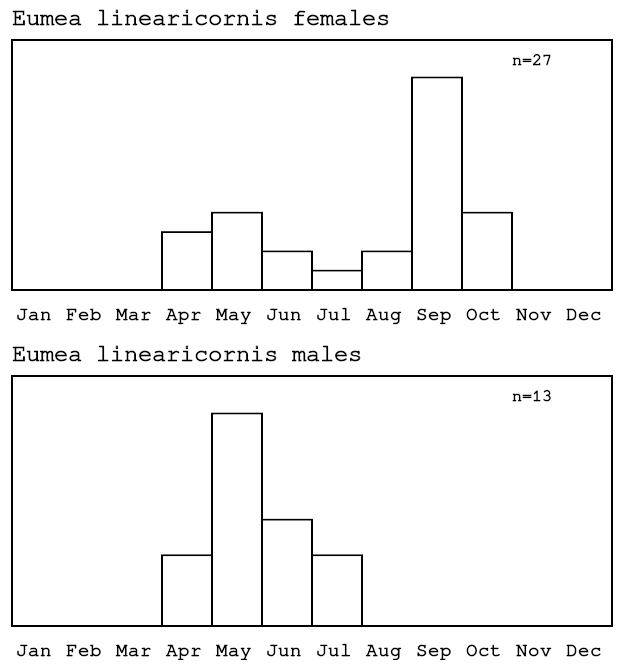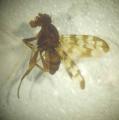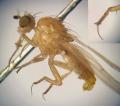Diptera.info :: Miscellaneous :: General queries
Who is here? 1 guest(s)
|
Sex differences in the phenology of Diptera
|
|
| tristram |
Posted on 30-05-2023 22:02
|
|
Member Location: Reading, UK Posts: 1333 Joined: 27.06.10 |
Does anyone know of any literature that deals with sex diferences in the phenology of Diptera? The following two plots are based on specimens I collected near Reading, UK since 2014. (Actually one specimen was collected in North Yorkshire) tristram attached the following image:  [9.63Kb] Edited by tristram on 30-05-2023 22:21 |
| tristram |
Posted on 30-05-2023 22:05
|
|
Member Location: Reading, UK Posts: 1333 Joined: 27.06.10 |
The complete absence of males from the autumn generation is not something I expected.
tristram attached the following image:  [9.19Kb] |
| tristram |
Posted on 30-05-2023 22:18
|
|
Member Location: Reading, UK Posts: 1333 Joined: 27.06.10 |
It seems to me that this is evolutionarily unstable and raises interesting questions, such as: Are the females that come out in the autumn reproducing asexually, or are they just wasting their time coming out at that time of year? What is the mechanism that 'wakes up' the females in the autumn but does not 'wake up' the males? I have found this, but it is not specific to Diptera): Sex-Differences in Phenology: A Tinbergian Perspective Cory T Williams, Helen E Chmura, Cole K Deal, Kathryn Wilsterman Integrative and Comparative Biology, Volume 62, Issue 4, October 2022, Pages 980–997 Any pointers to any other relevant literature would be much appreciated. Edited by tristram on 04-10-2023 19:00 |
| tristram |
Posted on 04-10-2023 18:59
|
|
Member Location: Reading, UK Posts: 1333 Joined: 27.06.10 |
Eumea linearicornis also appears to have a female-only autumn generation (all specimens collected from the area of Readiing, UK since April 2014)
tristram attached the following image:  [21.39Kb] |
| Fred Fly |
Posted on 05-10-2023 06:23
|
|
Member Location: Germany Posts: 396 Joined: 19.07.11 |
I remember no paper on protrandry in Diptera at present accept some notes on phenology for single species. There are papers and book chapters of general entomology dealing with it. I think that almost all Brachycera are protandrous. In some cases mated females are living very long and could be the only hibernating sex occuring in the following spring. Regards Fred |
|
|
|
| Jump to Forum: |













